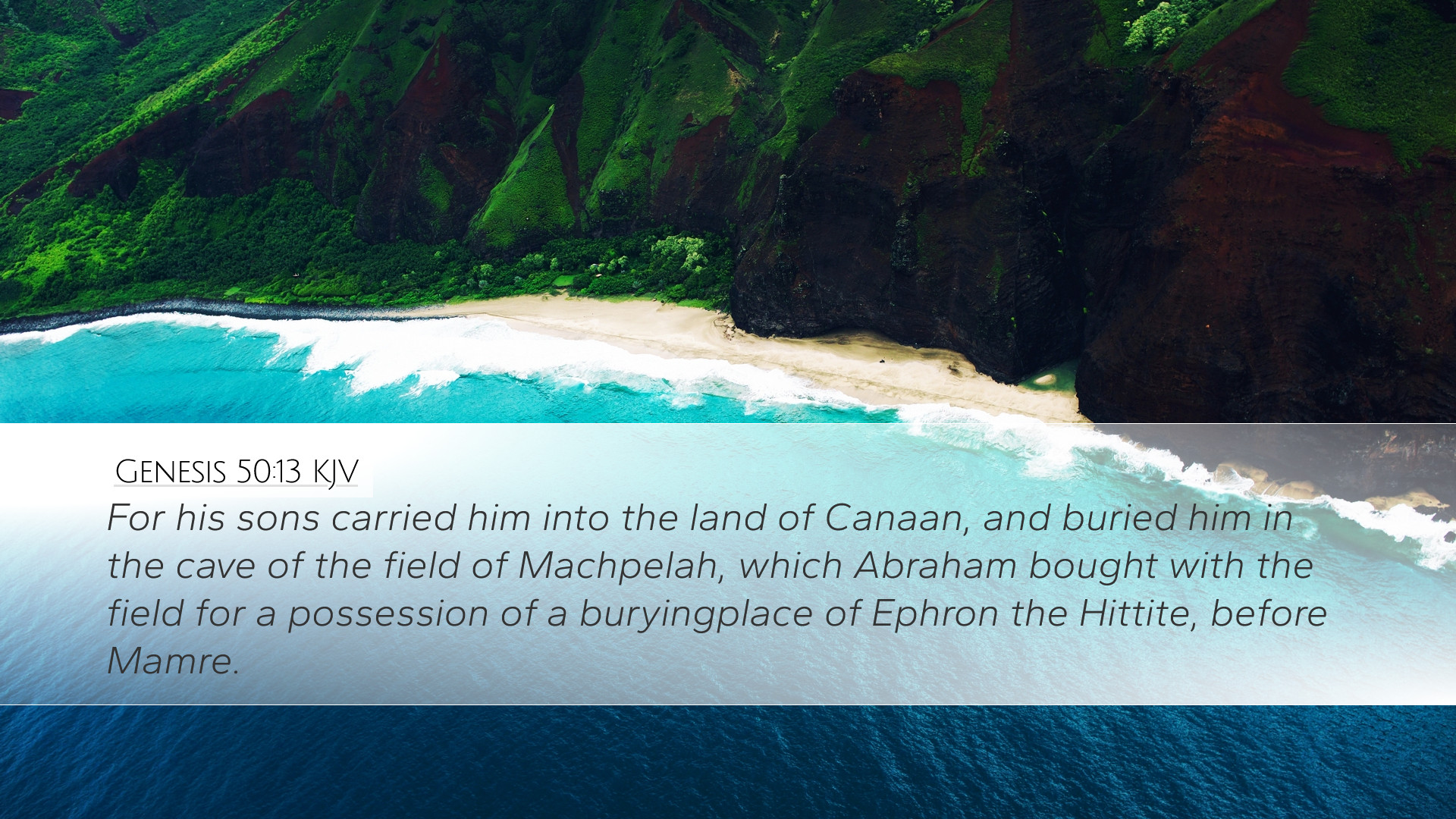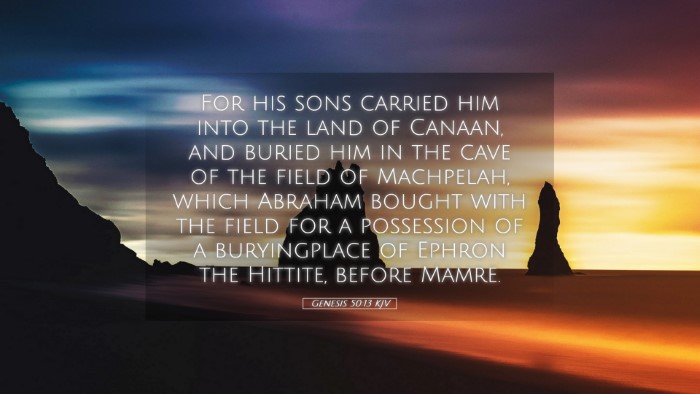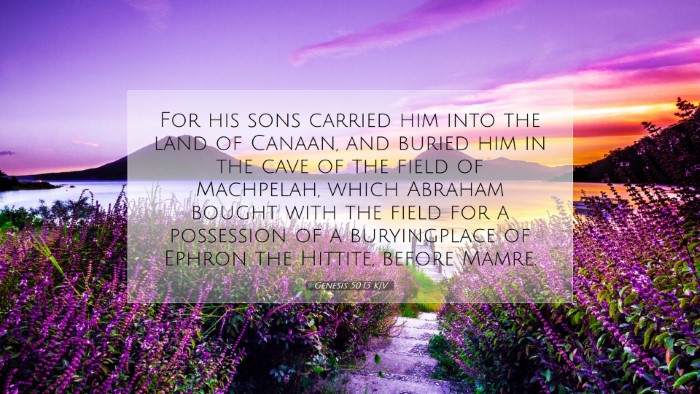Commentary on Genesis 50:13
Verse: "For his sons carried him into the land of Canaan and buried him in the cave of the field of Machpelah, which Abraham bought with the field for a possession of a buryingplace." (Genesis 50:13)
Introduction
The conclusion of the book of Genesis encapsulates themes of lineage, promise, and the sacredness of burial rites. This poignant verse illustrates the fulfillment of Jacob's desire to be buried in Canaan, an act rich with theological and historical significance.
Contextual Background
Before delving into the meanings of this verse, it is important to recognize its placement within the narrative. This passage occurs right after Jacob's death and emphasizes the significance of his burial site. The choice of Machpelah, purchased by Abraham as a burial plot, symbolizes the Abrahamic covenant that promised the land of Canaan to Jacob's descendants.
Theological Insights
- The Importance of Burial in the Hebrew Culture:
In ancient Hebrew culture, burial rites were taken seriously. It demonstrated respect for the deceased and reflected beliefs about life after death. The act of Jacob's sons carrying him to his chosen burial place underscores the importance they placed on honoring their father’s wishes.
- The Land of Promise:
This verse illustrates the deep-rooted connection that Abraham, Isaac, Jacob, and their descendants had with the land of Canaan. This land was not merely geographical; it represented God's promises and covenants. The burial of Jacob in Canaan acted as a testimony to faith in God's promises regarding the future of the Israelites.
- The Cave of Machpelah:
The cave functions as a symbol of God's covenant with Abraham. It signifies both a physical possession and a spiritual inheritance. It was the first parcel of land that Abraham owned in Canaan, thereby setting a precedent for the fulfillment of God's promises to him and his seed.
Commentary by Mathew Henry
Matthew Henry emphasizes the significance of Jacob's burial site, remarking that the grave speaks to the future of the people of Israel. He notes that Jacob’s request to be buried in Canaan demonstrated faith in God’s promises, illustrating a powerful example of hope for future generations. Henry also points out how this act laid the foundation for the Israelites' connection to the land.
Commentary by Albert Barnes
Albert Barnes provides a detailed explanation of the components of this verse. He notes that Jacob’s sons honored his last wishes as a sign of love and respect, an essential aspect of familial relationships in biblical tradition. Barnes also highlights that the act of returning Jacob's body to Canaan signifies the beginning of a journey for the Israelites toward their eventual establishment in the Promised Land. Barnes expresses how this burial symbolizes the forward movement towards the fulfillment of God's promises.
Commentary by Adam Clarke
Adam Clarke amplifies the discussion about the cave of Machpelah, noting its historical and spiritual significance. According to Clarke, this cave is described in rich detail in earlier chapters of Genesis, providing context to its importance as a burial site for patriarchs. Clarke emphasizes that this act goes beyond mere burial; it encapsulates God’s promise to Abraham concerning the land, affirming the importance of heritage and remembrance in the transmission of faith.
Practical Applications
- Faithfulness to God's Promises:
This text encourages believers to reflect on the importance of trusting in God's promises, even in death. Jacob's burial is a testament to his unwavering faith, challenging readers to consider their own faith journey.
- Honoring Parents:
The commitment of Jacob's sons to fulfill his last wishes serves as a reminder of the biblical command to honor one's parents. In the context of modern familial dynamics, this passage provides a basis for discussions about respect, care, and commitment within families.
- The Continuity of God’s Plan:
Jacob’s burial in Canaan acts as a marker of God’s ongoing plan for the nation of Israel. It invites reflection on the continuity of faith across generations and the importance of acknowledging one's spiritual roots.
Conclusion
Genesis 50:13 offers a poignant reflection on loss, legacy, and faith in the promises of God. The burial of Jacob in the land of Canaan is rich in theological significance, serving as a marker of God’s covenant with His people. Through the insights of commentators like Matthew Henry, Albert Barnes, and Adam Clarke, one can appreciate the layers of meaning found within this simple yet profound act. For pastors, students, theologians, and Bible scholars, it is a reminder of the sacredness of our heritage and the importance of the promises that guide our faith.


